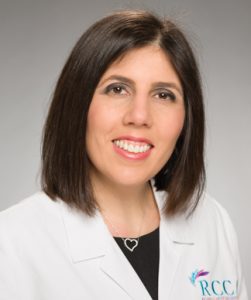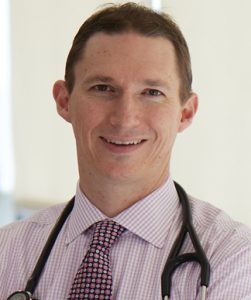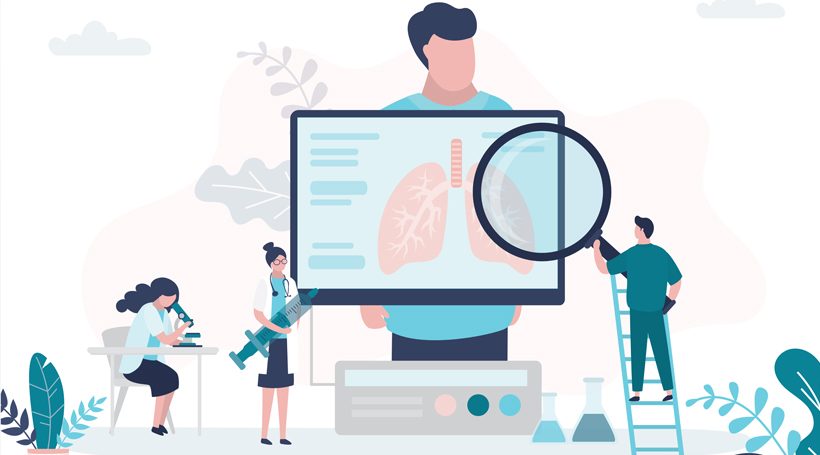Discussions about health and disease tend to be terrifying for many, but cancer treatment is one of the areas in medicine where doctors say things are actually looking up. Advancements in treatment have made life after diagnosis much different – and often, better – than it was decades ago.
1. Life doesn’t have to stop
When you have cancer, treatment significantly impacts a patient’s quality of life, says Rachel Levenbach, MD, a medical oncologist at Regional Cancer Care Associates – but it’s not as bad as many might think.

Rachel Levenbach, MD
There is no one way to treat cancer, she says, mainly because there are so many different types and stages of cancer. Some treatments, like intravenous chemotherapy, require hours at a time and can come with severe side effects like nausea, fatigue or hair loss. But even then, she says, there are new supportive medications to help significantly curb those side effects.
Others, like immunotherapy, which trains the body’s healthy cells to attack the cancer, only require half an hour per treatment and patients will experience mild symptoms like joint pain.
“Often, patients can live relatively normal lives,” says Levenbach. “They go to work, they go out and people don’t even have to know they’re in treatment.”
When doctors create treatment plans, she says, they can always adjust them depending on how a patient is feeling.
“I always have the conversation – what is your goal in care? How do you want to live your life? Do you want to continue this treatment,” says Levenbach. “Just because I prescribe something doesn’t mean a patient can’t choose something else. We can effectively attack cancer. But if you’re in bed all day, week after week, then that’s not healthy.”
2. Cancer, meet Covid
Living with a cancer diagnosis is never easy. But in the middle of a pandemic? It adds a whole new layer, says Jamin Morrison, MD, medical director of the Division of Hematology/Medical Oncology at Cooper University Hospital.

Jamin Morrison, MD
In the past 2 years, hospital restrictions greatly impacted a patient’s day-to-day life. Hospitals couldn’t allow visitors, so the patients who would typically bring their support system had to go alone.
“Before, I would be on a first-name basis with my patients’ husbands, children, friends, and that was a great benefit for me to know what type of support they have,” says Morrison. “But now, I have patients who have been in my care for years, and I’ve only recently met their families.”
It has also come with significant mental health issues, he says.
“When the pandemic hit, we canceled parties, trips – everything,” says Morrison. “People put their lives on hold. And when you’re living with cancer, that can be one of the biggest challenges – feeling like your life has come to a grinding halt.”
Restrictions may have been lifted for the general public, but as long as Covid is still here, cancer patients need to keep up many of the same precautions.
“Covid has taught the general population a lot about how we can take care of each other and protect the community,” says Morrison. “People are wearing masks. They’re staying home when they’re sick. They’re washing their hands more. These protect cancer patients who are at a higher risk of infection tremendously. The hope is that even after the pandemic is over, people will continue those measures when needed.”
3. You don’t know what you don’t know
There’s a side to life with cancer that many people don’t often talk about – and it’s such a crucial element that it can impact your entire journey: You’re living with cancer before you even know it.

Cataldo Doria, MD
“Ideally, doctors would be able to catch any abnormalities in a patient’s health as soon as they present,” says Cataldo Doria, MD, director of the Capital Health Cancer Center. “But that’s not always the case. When the pandemic hit, people put off their regular cancer screenings. By the time they came back into the office, the cancer was much more advanced.”
When the state lifted restrictions on non-urgent medical care, doctors urged patients not to delay screenings out of fear of exposure at a hospital or doctor’s office, but it took a long time for patients to trickle back in. Today, they are living with the consequences of those delays.
“There are so many different cancers and so many ways for cancer symptoms to present – if they present at all – that without screenings, you’d likely never know you’re sick until it’s too late,” says Doria.
Patients are becoming more regular with their screenings, he adds, but it doesn’t happen in the blink of an eye.
“Something as simple as keeping your yearly checkup with your family physician can go a long way in catching the disease early,” Doria says.
4. Find support wherever you can
Treatment is good and well, but the key component is having supportive services throughout the cancer journey, says Matthew Puc, MD, a thoracic surgeon at Virtua Surgical Group.

Matthew Puc, MD
Support services can be anything from nurse navigation – where patients have a “point person” to turn to with questions or to coordinate the different office appointments – to access to social workers, clinical nutritionists, fitness programs and support groups. And services aren’t just for patients, he says. Many are for friends, family and caregivers.
“It’s important that caregivers know how to do things like take care of wounds and manage nutrition,” says Puc. “But it’s also important for them to feel like they have someone who normalizes and validates their feelings. It’s difficult, scary and overwhelming when your loved one has cancer, and it helps to know they aren’t alone in that process.”
These types of programs can have a significant impact on outcomes, he says.
“You can have the best surgeons, the best chemotherapy, the best radiation,” says Puc, “but if you can’t get patients to their treatments because they have trouble scheduling or because it’s been so hard on their mental health, it’s not going to work.”














